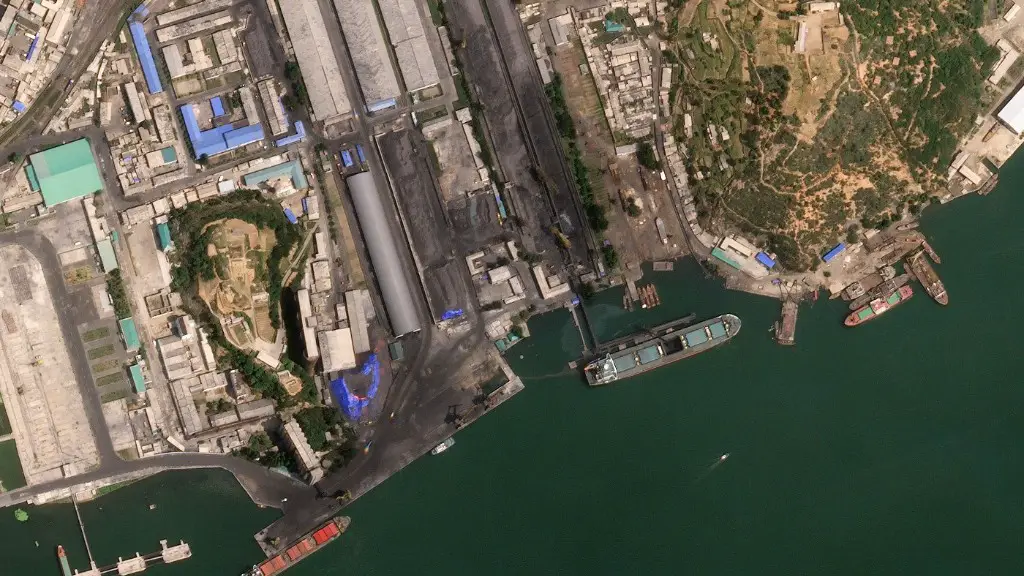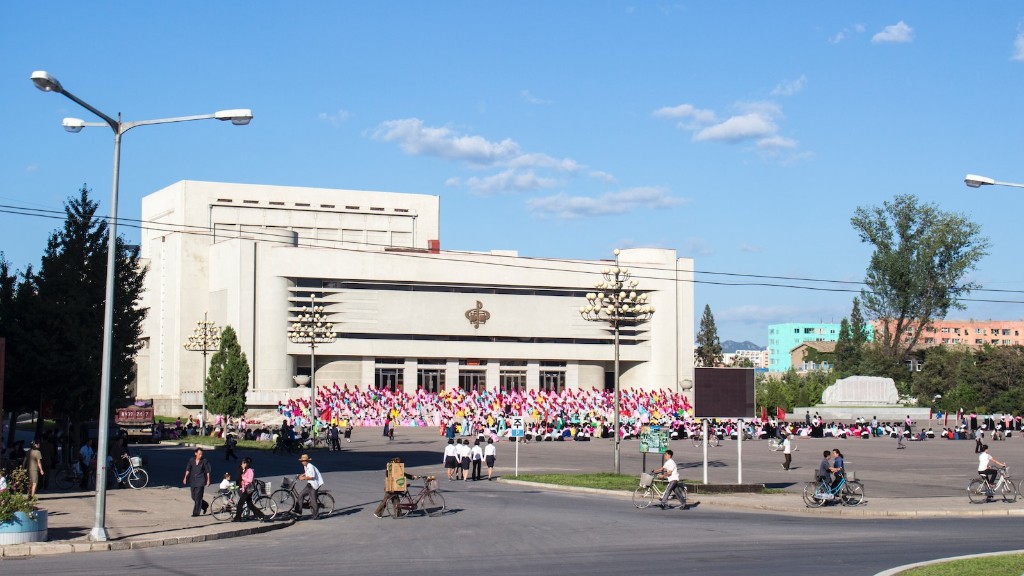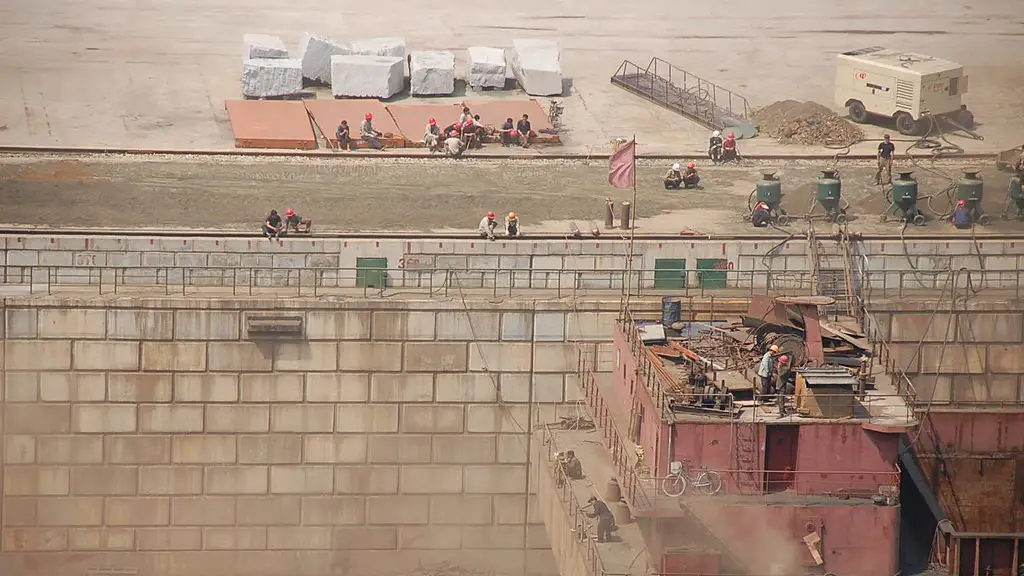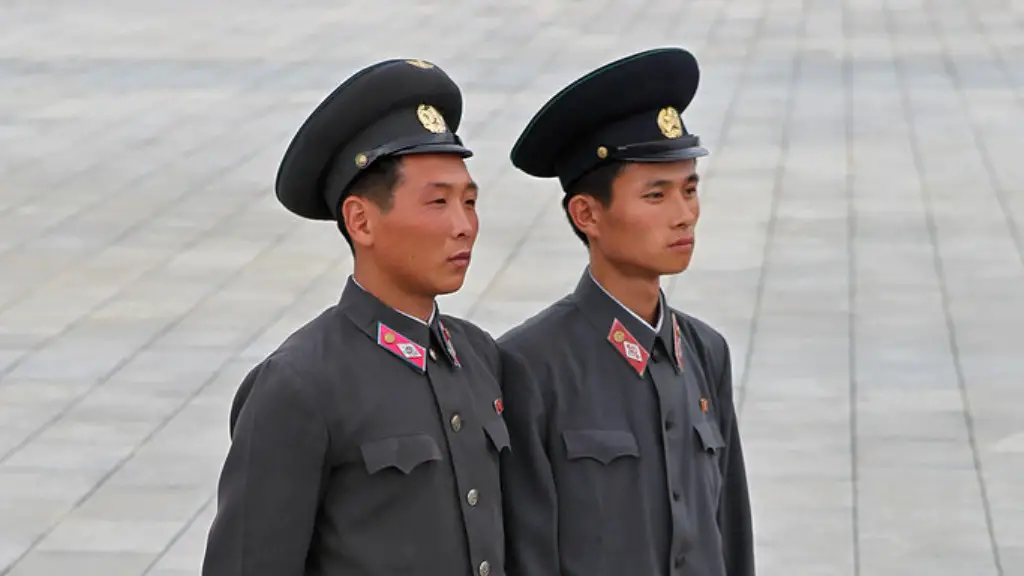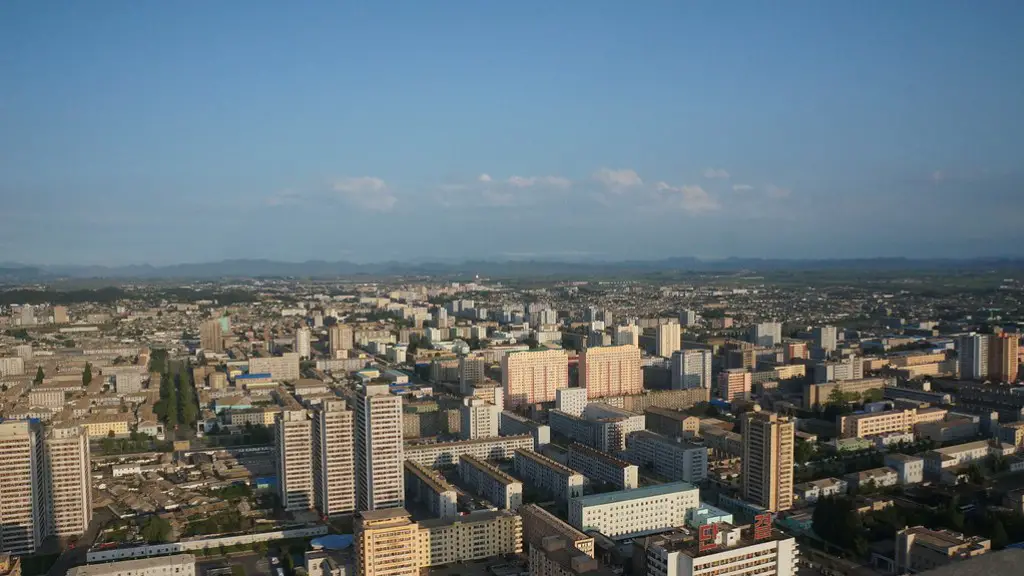The true crime rate in North Korea is difficult to accurately know due to the lack of transparency in the country. However, some studies seem to suggest that while there may be relatively low crime rates overall, the government’s heavy-handed approach to criminality is a major human rights issue and a major factor in the lack of security for citizens.
The Ministry of State Security in North Korea is arguably one of the most powerful and feared governmental authorities, wielding an enormous amount of influence and power. The ministry’s primary duty is to monitor and enforce law and order throughout the country. In doing so, the ministry is believed to employ an iron fist approach to crime and is considered to be the most repressive law enforcement agency in the world.
According to human rights activists, the Ministry of State Security is widely known to engage in torture and other forms of cruel, inhuman, or degrading treatment against suspects. Reports also suggest that the ministry beheads prisoners and publically displays their decapitated heads in order to encourage fear and obedience in the public. What’s more, reports has surfaced that describe the ministry’s use of concentration camps and solitary confinement often lasting months or years.
In 2016, the UN Economic and Social Council reported that there were at least 200,000 prisoners in North Korean prisons and detention camps. Such alarming numbers of prisoners in one country have raised serious questions about North Korea’s approach to criminal law and order. Many have argued that North Korea’s criminal justice system is designed to punish innocent citizens and force them into submission.
The lack of access to accurate crime data in North Korea makes it impossible to calculate the exact crime rate. However, it’s clear that North Korea’s criminal justice system is problematic and in need of reform. North Korea currently maintains one of the world’s most oppressive and brutal criminal justice systems and its policies have yielded a society of fear and violence.
How North Korean Criminal Law is Used as a Tool of Oppression
North Korean criminal law is an instrument of political control used by the government to maintain power and limit the freedom of its citizens. The laws are extremely draconian, with heavy penalties for any perceived breach of loyalty to the government. Furthermore, the government often uses the law to target political and religious dissidents in order to quash political dissent.
The North Korean criminal code is highly repressive and criminalizes activities such as listening to foreign radio broadcasts, owning unauthorized cellphones, writing leaflets claiming the government’s policies are unjust, and even the possession of Christian literature or scripture. Such laws are used to control the population by intimidating citizens, encouraging them to remain loyal to the government, or by punishing any attempts at political dissent or criticism. The laws do not promote public safety but rather maintain a social order in which the government is held in absolute power.
The laws are also used as a tool to prevent people from leaving the country and to ensure that those who do leave remain loyal to the government. For example, individuals who attempt to leave the country without permission can face serious charges, including the death penalty. Furthermore, defectors who are caught and returned to the country have been known to face harsh prison sentences.
North Korea’s Lack of Access to Justice
The majority of North Koreans have little to no access to justice. Reports suggest that North Koreans are often subject to arbitrary arrests, detainment and conviction without access to legal counsel or trial. Moreover, the government frequently incarcerates individuals based on suspicion alone, with no evidence of a crime being committed.
The lack of access to justice is one of the biggest grievances among North Koreans and serves as both a violation of their human rights and a hindrance to their ability to live a secure life. Government authorities have been known to use the law to target not just dissidents but also to take advantage of economic disparities. Reports suggest that the impoverish individuals of the country are disproportionately targeted by the law, being rejected access to justice due to their lack of financial resources.
Furthermore, many suspects are not given a fair trial and are sentenced without any due process. Upon sentencing, they are sent to labor camps where they are further subjected to torture and abuse. Such criticism has led to the UN’s Office of the High Commissioner for Human Rights urging North Korea to end its arbitrary detention practices.
Effect on Victims and Their Families
The effects of North Korea’s draconian criminal justice system are far-reaching. For victims and their families, the effects can be devastating. The trauma of imprisonment and torture can haunt individuals for decades, even after they’re released. Many former inmates suffer from depression, anxiety and post-traumatic stress disorder. Moreover, many are unable to return to their homes and find it difficult to reintegrate into society.
For the families of victims, the effects can be just as profound. Reports suggest that many families of prisoners suffer from extreme trauma and often feel isolated or stigmatized due to the shame of having a family member commit a crime or be imprisoned. Furthermore, they often live in fear of government reprisal and experience great economic hardship due to the loss of an income source or paying for an attorney.
On a societal level, the effects of North Korea’s criminal justice system can also be damaging. The fear of violent punishment and the lack of access to justice have led to a climate of fear and mistrust within the population. Such an environment can lead to other social ills such as inequality and poverty, among others. It is in this way that North Korea’s repressive criminal justice system can have a significant impact on its citizens and society at large.
International Criticisms of North Korea’s Criminal Justice System
The North Korean criminal justice system has been widely criticized by the international community for its blatant disregard for human rights and its failure to uphold the rule of law. In 2016, the Human Rights Council outlined a number of recommendations calling on the nation to comply with international standards of justice and due process, grant access to legal services, and improve prison conditions. Such concerns, however, have yet to be addressed by the North Korean government and the human rights situation within the country remains bleak.
The international community has also criticized North Korea’s heavy-handed and often arbitrary approach to crime. Reports have revealed that individuals can be arrested and detained based on suspicion alone and suffer harsh punishment even if they are not found guilty of any crime. Moreover, reports suggest that North Korean authorities are highly complicit in acts of torture, detention, and extrajudicial killings in an effort to maintain a climate of fear. Such violations of human rights have been widely condemned by the international community.
A Need for Reform
North Korea’s criminal justice system is in dire need of reform. The nation’s laws and policies should be brought in line with international standards and should ensure the protection of human rights and due process. Additionally, access to justice should be made available and criminal punishments should be proportional to the crimes committed. Most importantly, North Korea must end its practice of arbitrary arrests, torture and other human rights abuses.
The government has an obligation to protect its citizens and to uphold the rule of law. To this end, North Korea must take concrete steps to ensure its criminal justice system is accountable, impartial and in line with international standards. Until such reforms are made, North Koreans will continue to suffer injustices, human rights abuses and violations of their fundamental rights.
Domestic Criticism and Government Pushback
Despite the criticism from the international community, the North Korean government continues to defend its criminal justice system, claiming it is necessary to protect the nation and its citizens. The government has also attempted to counter, discredit and even silence domestic criticism of its criminal justice system.
Reports suggest that the government has engaged in a campaign of intimidation to silence those who speak out against the system. Such tactics include arrests, lengthy interrogations, indefinite detentions and even torture. Additionally, the government has been known to retaliate against the families of critics and to deny them access to basic resources such as food, water and healthcare.
In recent years, more North Koreans have begun to openly criticize the criminal justice system and demand reform. The North Korean people have demonstrated a clear desire for transparency and accountability in the justice system. However, the government has yet to respond to these demands and has instead continued to engage in repression and intimidation of its own citizens.
Foreign Advocacy and Emergence of Groups
The international community has taken steps to advocate for the North Korean people and to press the government for reform. A number of non-governmental organizations have emerged in recent years that are working to draw attention to the country’s human rights abuses and its oppressive criminal justice system. Such organizations have raised awareness and lobbied governments to put pressure on North Korea to reform its laws and to improve access to justice.
Furthermore, organizations such as the UN Human Rights Council have demanded the government to address the human rights concerns that have arisen in regards to the criminal justice system. International pressure, however, has so far been unsuccessful in spurring the government to take any meaningful action.
The United States, in particular, has been particularly vocal in its criticism of North Korea’s human rights abuses and its criminal justice system. The US has imposed economic sanctions on North Korea in an effort to pressure the government to make reforms.
Despite the lack of progress, many human rights advocates remain hopeful that the government will eventually be compelled to make changes. The North Korean people continue to demonstrate their resiliency in the face of an oppressive and unjust system and it is the hope of many that one day the criminal justice system will be reformed and the human rights of North Koreans will be upheld.

